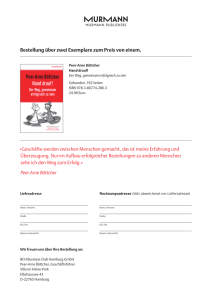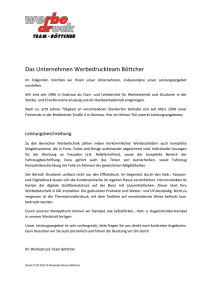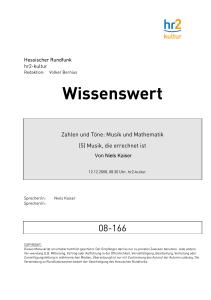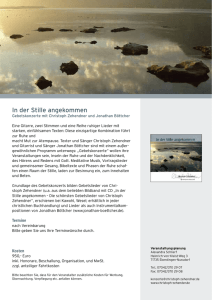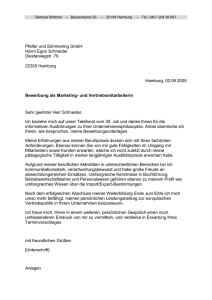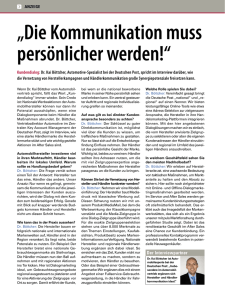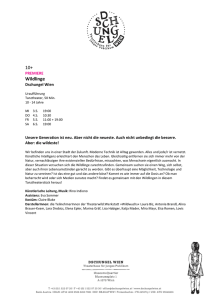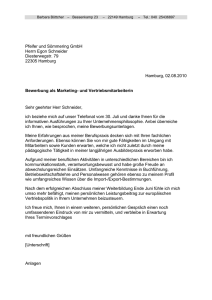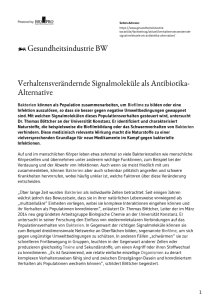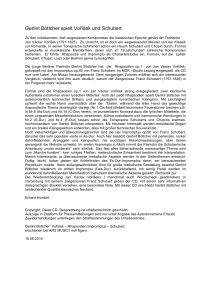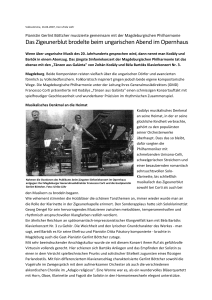Detailseite
Werbung
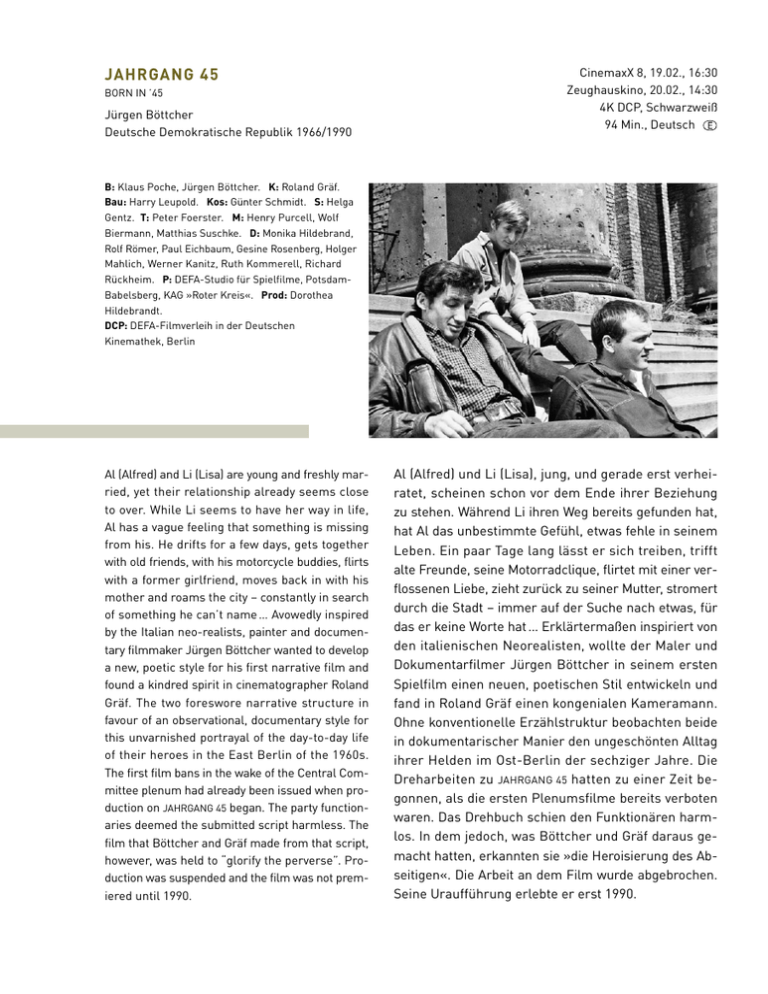
JAHRGANG 45 BORN IN ʼ45 Jürgen Böttcher Deutsche Demokratische Republik 1966/1990 CinemaxX 8, 19.02., 16:30 Zeughauskino, 20.02., 14:30 4K DCP, Schwarzweiß 94 Min., Deutsch B: Klaus Poche, Jürgen Böttcher. K: Roland Gräf. Bau: Harry Leupold. Kos: Günter Schmidt. S: Helga Gentz. T: Peter Foerster. M: Henry Purcell, Wolf Biermann, Matthias Suschke. D: Monika Hildebrand, Rolf Römer, Paul Eichbaum, Gesine Rosenberg, Holger Mahlich, Werner Kanitz, Ruth Kommerell, Richard Rückheim. P: DEFA-Studio für Spielfilme, PotsdamBabelsberg, KAG »Roter Kreis«. Prod: Dorothea Hildebrandt. DCP: DEFA-Filmverleih in der Deutschen Kinemathek, Berlin Al (Alfred) and Li (Lisa) are young and freshly married, yet their relationship already seems close to over. While Li seems to have her way in life, Al has a vague feeling that something is missing from his. He drifts for a few days, gets together with old friends, with his motorcycle buddies, flirts with a former girlfriend, moves back in with his mother and roams the city – constantly in search of something he can’t name … Avowedly inspired by the Italian neo-realists, painter and documentary filmmaker Jürgen Böttcher wanted to develop a new, poetic style for his first narrative film and found a kindred spirit in cinematographer Roland Gräf. The two foreswore narrative structure in favour of an observational, documentary style for this unvarnished portrayal of the day-to-day life of their heroes in the East Berlin of the 1960s. The first film bans in the wake of the Central Committee plenum had already been issued when production on JAHRGANG 45 began. The party functionaries deemed the submitted script harmless. The film that Böttcher and Gräf made from that script, however, was held to “glorify the perverse”. Production was suspended and the film was not premiered until 1990. Al (Alfred) und Li (Lisa), jung, und gerade erst verheiratet, scheinen schon vor dem Ende ihrer Beziehung zu stehen. Während Li ihren Weg bereits gefunden hat, hat Al das unbestimmte Gefühl, etwas fehle in seinem Leben. Ein paar Tage lang lässt er sich treiben, trifft alte Freunde, seine Motorradclique, flirtet mit einer verflossenen Liebe, zieht zurück zu seiner Mutter, stromert durch die Stadt – immer auf der Suche nach etwas, für das er keine Worte hat … Erklärtermaßen inspiriert von den italienischen Neorealisten, wollte der Maler und Dokumentarfilmer Jürgen Böttcher in seinem ersten Spielfilm einen neuen, poetischen Stil entwickeln und fand in Roland Gräf einen kongenialen Kameramann. Ohne konventionelle Erzählstruktur beobachten beide in dokumentarischer Manier den ungeschönten Alltag ihrer Helden im Ost-Berlin der sechziger Jahre. Die Dreharbeiten zu JAHRGANG 45 hatten zu einer Zeit begonnen, als die ersten Plenumsfilme bereits verboten waren. Das Drehbuch schien den Funktionären harmlos. In dem jedoch, was Böttcher und Gräf daraus gemacht hatten, erkannten sie »die Heroisierung des Abseitigen«. Die Arbeit an dem Film wurde abgebrochen. Seine Uraufführung erlebte er erst 1990.
